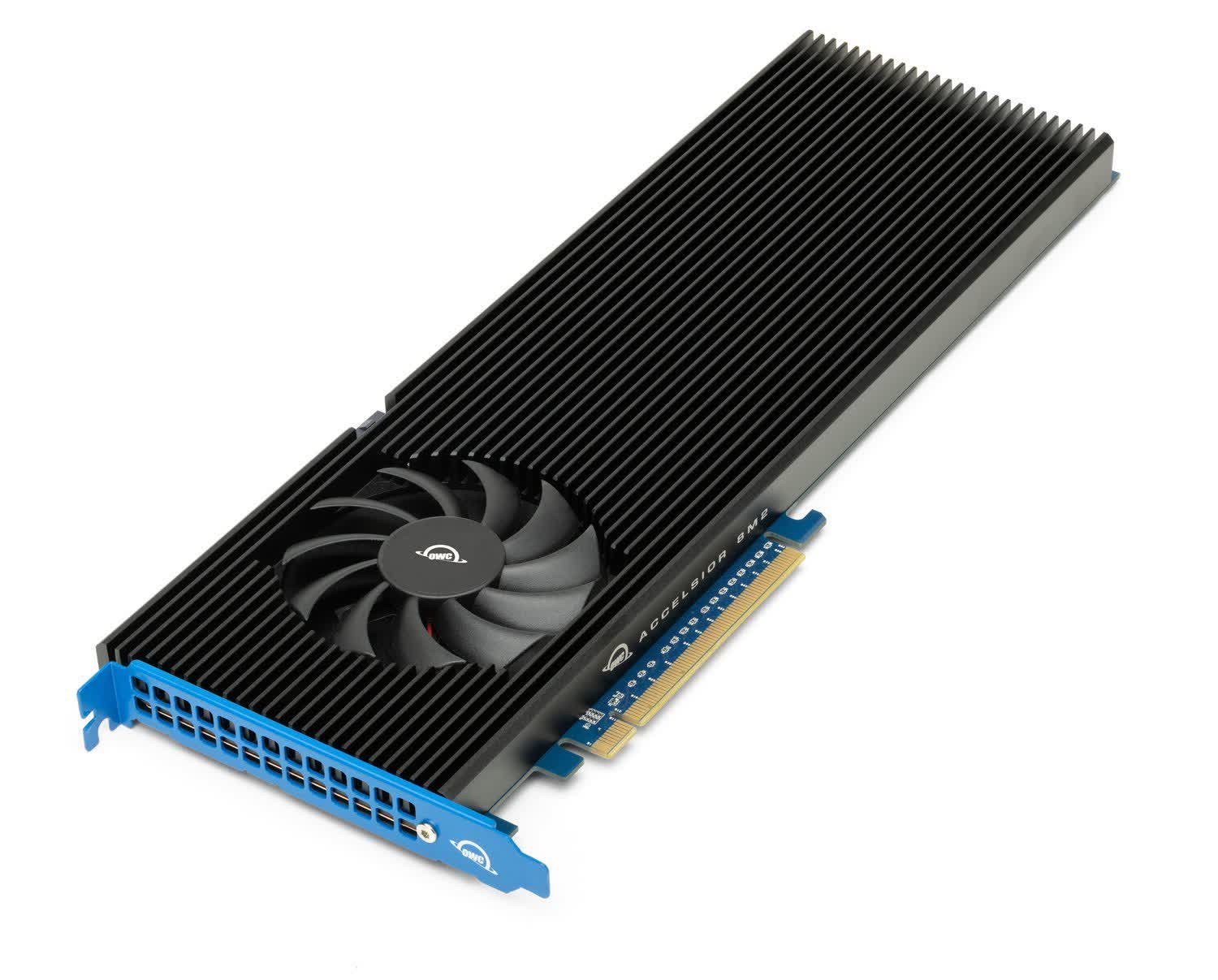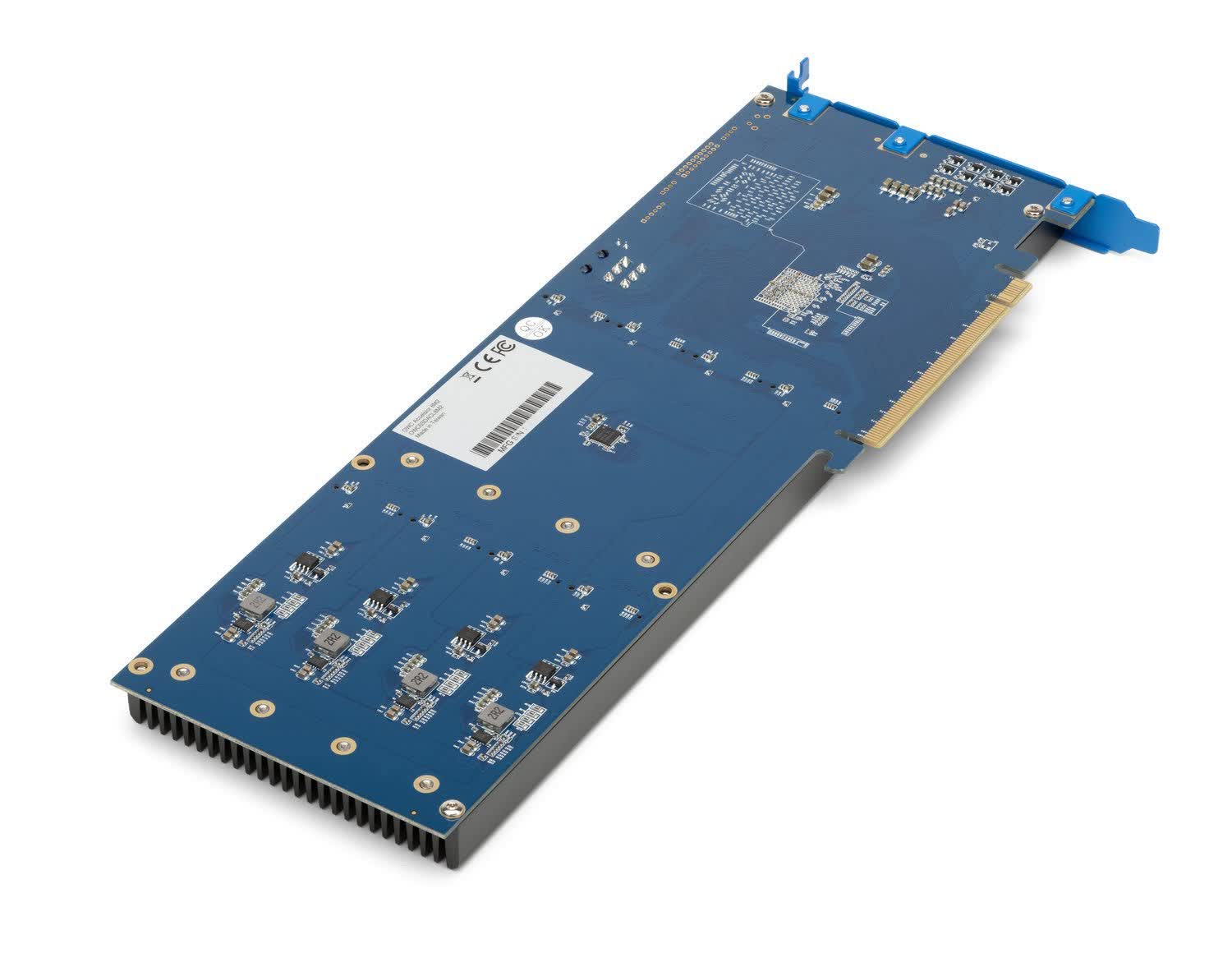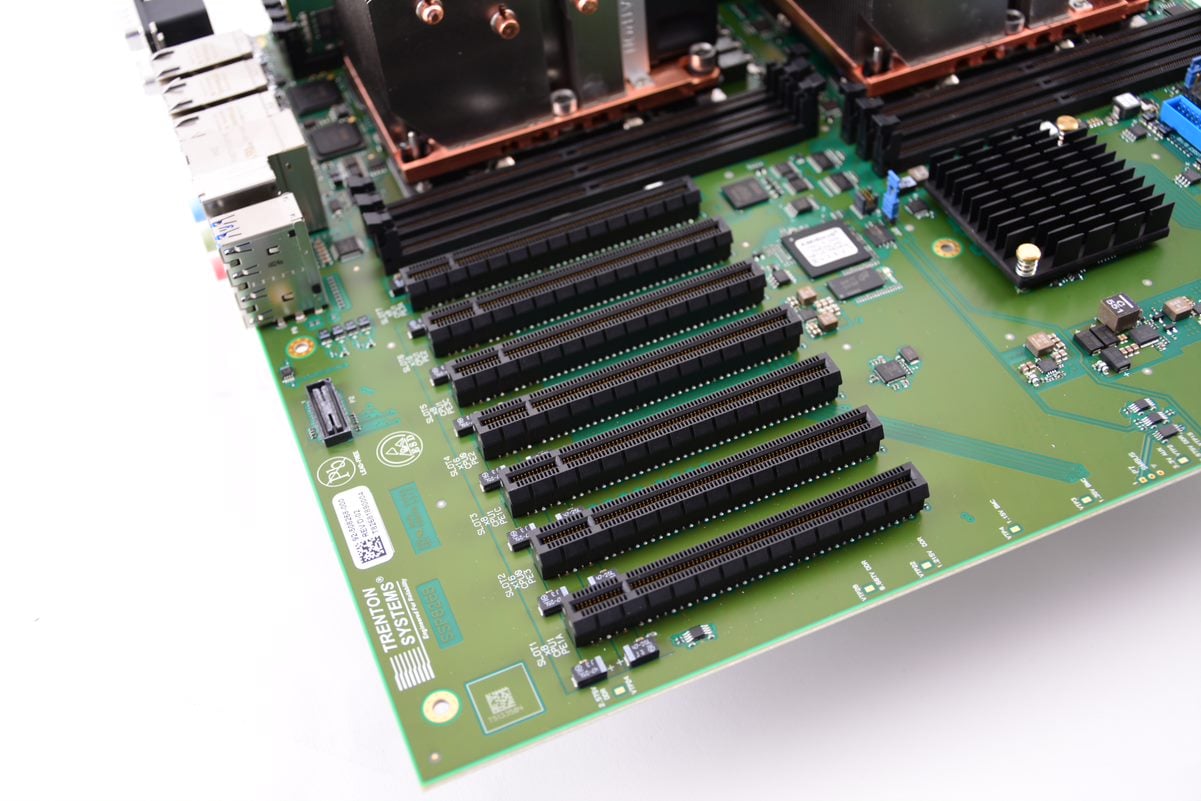In a nutshell: We know that storage drives have seen their speeds and capacities increase massively over the last few years, but Other World Computing, also known as OWC, says it has created the world's fastest and highest-capacity PCIe SSD.

The OWC Accelsior 8M2, which at first glance could be mistaken for a graphics card, fully utilizes the bandwidth of PCIe 4.0, giving it a total speed of up to 26,000 MB/s. For comparison, most PCIe 4.0 SSDs, such as Kingston's KC3000, Seagate's FireCuda 530, and Corsair's MP600 Pro XT reach 7,000 MB/s or just over.
OWC says the speed of its drive can remove bottlenecks and allows for some very impressive feats, especially if you're a video editor. This includes being able to playback 16 streams of 8K ProRes444 (or eight streams of 12K) in Final Cut Pro X.
The company notes that each of the eight NVMe M.2 SSD slots in the Accelsior 8M2 can run at their full x4 lanes of PCIe data throughput. To ensure it runs at peak speeds for lengths of time, there's a quiet cooling fan built into the aircraft-grade aluminum heat shield.
Not surprisingly, OWC's product is very expensive. It starts at $799 for a 0TB empty expansion card, ready for buyers to add their own drives. The 2TB model is $1,299, it's $,1,699 for 4TB, 8TB is $2,479, $4,299 for 16TB, and $7,999 for 32TB. Finally, it's a whopping $12,999 for 64TB stored across the eight slots. That's a lot of money, but then this isn't aimed at everyday consumers.

The OWC Accelsior 8M2 is compatible with Mac, Windows, and Linux devices and has advanced RAID capabilities. It includes the SoftRAID XT software RAID utility, which OWC says includes features users don't get with hardware RAID. Customers also receive one year of cloud backup and antivirus software protection through the company's partnership with Acronis.
"We are always trying to push technology to the limits, and with the OWC Accelsior 8M2, can be summed up in one definitive sentence. It's the fastest, highest-capacity PCIe SSD in the galaxy," said Larry O'Connor, OWC's CEO.
https://www.techspot.com/news/92184-owc-drive-fastest-highest-capacity-pcie-ssd-world.html


